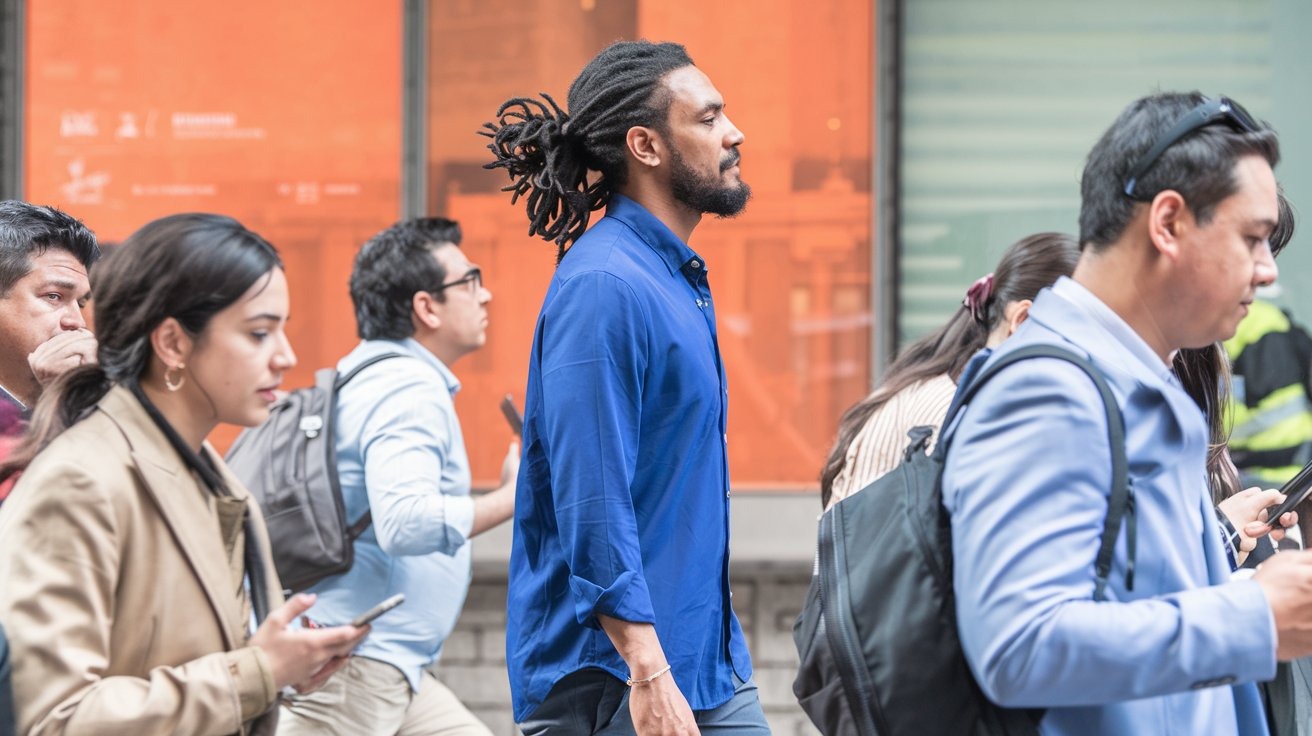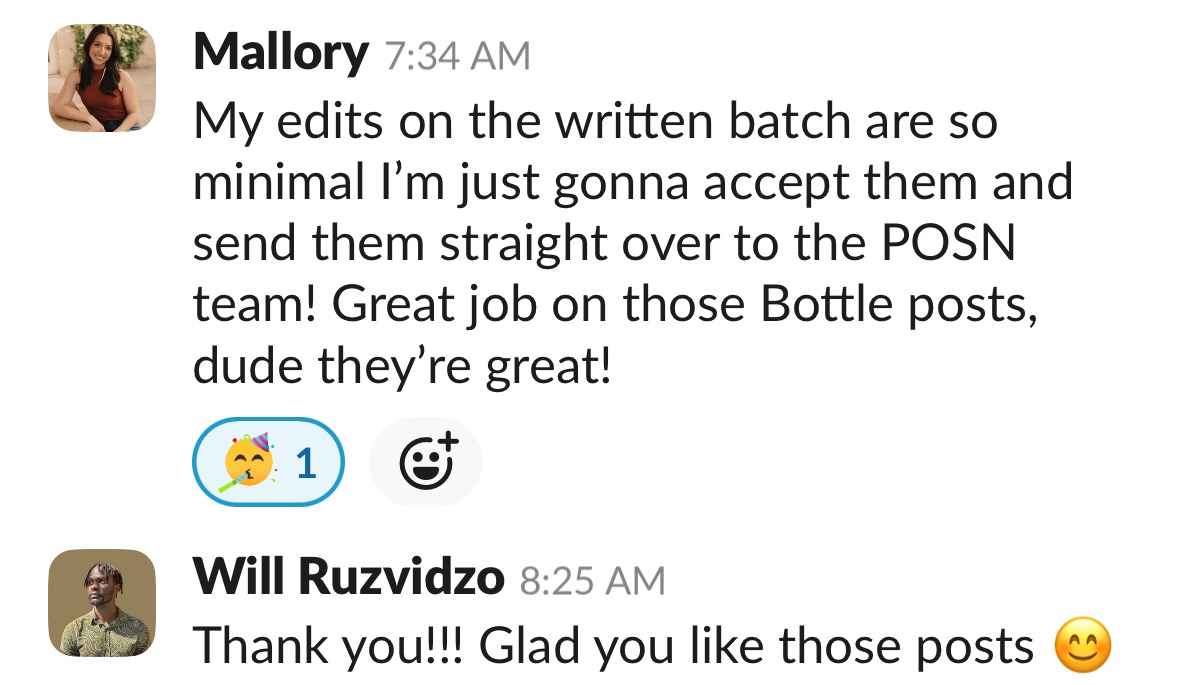How Slowing Down Transformed My Mind, Work, and Well-Being

Image created via Ideogram
Sociologists have identified a phenomenon called social acceleration, which is just a fancy way of saying that life feels like it’s on fast-forward. Everything’s speeding up — work, social plans, even our “downtime.” And the result? Chronic time poverty. No matter how fast we go, there’s always more piling up.
I know that feeling all too well. My whole life has basically been defined by rushing to get things done. For years, I’d leap out of bed, power through deadlines, sprint to the gym, rush back for a Zoom call, eat at my desk, etc. The only things I got out of it were stress and burnout.
And I know I’m not alone. Studies reveal the high cost of this constant rush: chronic stress can reduce life expectancy by as much as 2.8 years for men and 2.3 years for women. Work-related stress alone is estimated to contribute to around 120,000 deaths per year in the U.S.
Last spring, I was in full burnout mode. As they say, the body keeps the score, and mine was definitely keeping tabs. Back pain, tension, you name it. I ended up needing acupuncture and regular massages just to get some relief — all because of the constant stress I had put my body through.
But then, lo and behold, I ended up being laid off and I suddenly found myself with extra time on my hands. I took this as a chance to be more intentional and finally slow down. Here’s what I did.
Reclaiming my mornings set the tone for everything
The first thing I did was reclaim my mornings. I started waking up earlier each day, carving out moments to slowly ease into the day by meditating, reading, journaling, and playing the mbira.
The funny thing is, I used to be a night owl, and I hated waking up early, but now, if I miss my “slow morning ritual,” the rest of the day just feels off. Skipping it puts me right back into survival mode, and I end up feeling like I’m in fight-or-flight for most of the day.
Box breathing helped me find more balance
One of the best techniques I’ve picked up is box breathing, a method that uses timed breathing to calm the mind and body. It’s simple: breathe in for four counts, hold it for four, exhale for four, and then pause for four.

Image via Ideogram
I started with a solid 10 minutes of box breathing in the morning as part of my meditation routine, and I gradually built it up to 30.
Whenever stress creeps in during the day, I pause and breathe. It’s like a reset button that helps me find my center and stay focused.
Speaking at a relaxed pace made me more present
I also started binge-watching Breaking Bad (yes, I know I’m late to the party). My favorite character is Gus Fring, played by Giancarlo Esposito. Ever notice how Gus speaks in this slow, measured, deliberate way? It’s fascinating.
As an experiment, I decided to try slowing down my own speech. I’ve found that speaking at a more relaxed pace helps me articulate my thoughts better, and my mind doesn’t race as much. It even cut down my reliance on filler words like “um.”
Walking slower helped me stay grounded
This one was hard for me. I’ve always been someone who rushes from A to B, with the goal to get everywhere as fast as possible. So walking slower felt unnatural at first.
But now, I’m noticing things I’d completely overlooked before—even on my daily walks to the gym. When you walk slower, it feels like the world slows down with you.
You think slower, speak slower, and your whole rhythm finds a calmer, more intentional flow.
Ice baths pushed me to build resilience
My friends thought I was crazy for this one, but I started doing ice baths at least once a month. Ice baths are a great way to build both focus and grit.
Each time I step in the icy water, I have to keep my mind steady and focus on breathing through the chill. Sure, the experience is intense but it’s a powerful exercise in staying present, and also builds mental toughness in the process.
I’ve started applying this mindset to other areas of my life, like bracing myself for tough conversations or tackling decisions I’d rather avoid. Ice baths teach you to breathe through the discomfort, taking slow, steady breaths. They give me the grit to face the tasks I don’t want to do and power through them.
What slowing down did for me
Each of the changes I made had its own impact, but together they had a greater effect. Taking things slower has reshaped how I think, work, and feel.
Clearer thinking and sharper decisions
While I haven’t completely kicked the habit of rushing, I’m a lot more aware of it now and make a conscious effort to slow down when I catch myself speeding through things.
Instead of juggling multiple tasks or making snap decisions, I try to focus on one thing at a time, giving it the attention it deserves.
Overall, the goal is to be more intentional with my time and the choices I make, from work projects to personal decisions. I might not get it right every time, but at least I’m noticing—and that’s a start.
Higher quality work over speed
Slowing down has boosted the quality of my work. Taking my time means I can focus on details instead of cutting corners to meet tight deadlines.

And the proof is in the pudding. The quality of my work is noticeably better, and even my clients and editors have noticed.
Smarter priorities, less stress
Slowing down has made it clear that not everything needs my attention right away. Before, every task felt urgent, which only fanned the flames of my stress.
Now, I can sort out what actually deserves my focus and what can wait. It’s given me a greater sense of control and balance over my life.
Stronger boundaries, better well-being
With smarter priorities come stronger boundaries. I’m now making sure I’m getting enough rest, sticking to self-care routines, and actually listening to what my body needs.
By slowing down and setting stronger boundaries, I’m also more comfortable saying no to anything that makes me feel rushed, panicked, or stressed. It’s great being able to do things at a more measured pace without feeling like I’m running on fumes.
Laser focus, better results
Focus has always been a struggle for me, more so now because we are constantly bombarded by distractions and notifications. But I’m getting better at it.
Because of my deliberate efforts to slow down, I actually notice when I reach for my phone. And now, instead of mindlessly doom-scrolling, I try to redirect my attention to the task at hand.
There’s real power in focused attention, and while I’m still working on it, actively trying to slow down has made me way more aware when my mind starts to wander.
Discipline keeps it all together
Slowing down takes effort, but it also takes discipline. It’s not always easy to resist the urge to rush or overcommit, but I’ve learned that discipline doesn’t have to feel rigid. It’s about consistently showing up for the things that matter and sticking to the habits that support a calmer, more intentional life. The more I practice, the easier it gets.
A slower life = a better life
Slowing down has reshaped how I live and work in ways I never expected. I’m more deliberate with my choices, whether it’s deciding how to spend my mornings or how I approach my projects.
I’ve learned to focus on quality over speed and to prioritize the things that truly matter to me. My days feel more balanced, my work feels more meaningful, and I feel more connected to the present moment.
It’s still a struggle sometimes. The old me still tries to take over and power through things. But when I slow down and approach life with more intention and deliberate actions, I feel lighter and more relaxed.
I wouldn’t trade this feeling for anything.
Post a comment